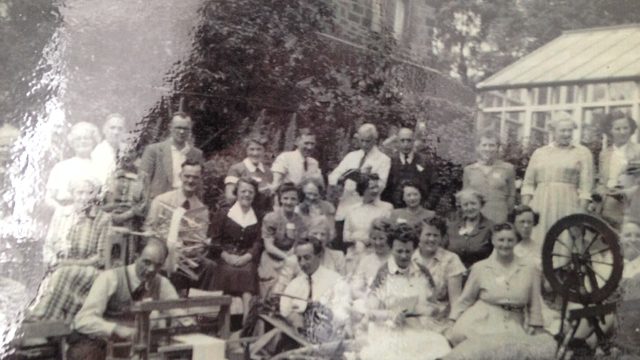My interest in researching Sheffield’s mental health story stems from personal experience. My experience not only led me to where I am today, but influenced every aspect of my studies. It was the driving force behind my journey towards becoming a university student, impacting my studies as I tried to manage my mental health, and has become the focus of my PhD research.
My decision to return to education came following a long period of illness which bound and restricted me, and my mum’s suicide. I became determined to embrace and work with my mental health and achieve.
During my studies I became increasingly interested in literary representations of mental health, something which resonated with me and my experiences. On learning about Middlewood Asylum in one of my classes, I became fascinated about the history of those who lived in Sheffield with mental health conditions, and the way in which they were understood, represented and treated.
I have explored the history of Middlewood Asylum over the past couple of years from different angles. I initially explored what happened on the closure of Middlewood, listening to the stories of those who worked there, which were often difficult to listen to, and exploring the care in the community initiative. Care in the community was supposed to foster positive community dynamics and reduce the stigma of mental illness. How effective this was, however, has been since brought into question.
As ideas around care in the community suggest, Middlewood was a place of isolation. With the aim of providing a rural retreat for patients, it was built outside of the city. Hospitals like Middlewood were often self-sufficient, and had little contact with the communities around them. On reading about this I became interested in the relationship between Middlewood’s patients and the community, as well as the development of this relationship, something which I continue to study.
My current research explores Middlewood’s patients in the late nineteenth century, exploring not only their representation, but attempting to uncover their stories. My personal experience has led me on a journey which has helped me understand my own history, coming from a family with a history of mental health conditions. It has also helped me look closer at city in which I live, its relationship to mental health and local understanding. I am fascinated by the way in which places like Middlewood shaped public understanding of those who were patients there.
I hope that my research will help us to understand current sigma surrounding mental health and in doing so alter the perception, an ambitious task! As someone, however, who is constantly aware of the stigma surrounding mental health, and having had negative experiences, I am passionate about not only understanding Sheffield’s mental health story but also creating a bright future for those in Sheffield with mental health conditions. I continue to talk about my own mental health in order to help students, like myself, who have struggled with their mental health and to explore the importance of its history in Sheffield.



